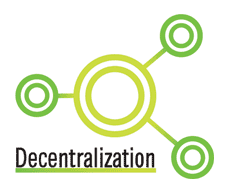Decentralisation has progressively gained importance in Africa since the 1990s. Whether by own choice or as a result of external pressures especially from the World Bank and the International Monetary Fund (IMF), a great majority of third world countries including the Republic of Cameroon are currently involved in some form of decentralisation, with varying degrees of commitment and success. Despite the commitment by states to the decentralisation process, several states have not yet embraced territorial coaching as part of the decentralisation drive. The much talked about principle of subsidiarity which warrants that a lower tier of government is allowed to carry out services at the grassroots autonomously, still remains an illusion in several African states.
With a multitude of actors working to hasten the decentralisation process and improve local economic development like the World Bank, the African Development Bank, the African Union, United Cities and Local Governments of Africa (UCLG Africa), the All Ministerial Conference on Decentralisation and Local Development, the decentralisation process remains slow in Africa. Central governments and international actors seem to be focusing more on signing conventions and creating institutions rather than ensuring that the decentralisation process attains effective realisation. All the same, some African states especially states like Morocco are now ensuring that rural and/or urban actors work together to improve the living conditions of populations and provide solutions through development projects supported by the central government, associations, cooperatives, municipalities, agencies and non governmental organisations (NGOs).
Ownership and empowerment of regional and local government actors in the realisation of development projects has an impact on the development and performance of any territory. To meet this challenge, an innovative approach to intervention at regional and local government is essential through a process called territorial coaching. Apart from countries like Morocco and South Africa that have embraced the territorial coaching approach to local economic development, there is still a concern if other states in Africa are ready for territorial coaching.
Territorial coaching is an intervention process for the identification, support and enhancement of human potential of local actors by giving them ownership of local economic projects and empowering them so that they play an important role in local economic development. UCLG Africa initiated a program of coaching and support to the local authorities and their associations in the implementation of the decentralisation process in Morocco. This initiative has created collaborative ties among local authorities, representatives of the central government, civil society organisations, and private sector actors. The regional and local government areas in Morocco involved in this initiative are the city of Salé, the Commune of Beni Meskine (Settat), the Municipality of Wazzan, the Region of Meknes -Tafilalet Oasis and the South East (Bouanane). The Ministry of Interior of Morocco works with UCLG and some local associations by giving assistance and support to these communities via training, capacity building, skills development and the promotion of networking.
Judging from other country experiences in Africa, territorial coaching has not yet gained grounds. The decentralisation process in states like Cameroon, Congo, Central African Republic and Chad is still very top down driven. Central government actors still impose decisions on regional and local government actors rather than embracing the territorial coaching approach. Local and regional government actors in these states are not sufficiently empowered and they do not have true ownership of their projects.
It is thus vital for the UCLG in partnership with other regional organisations like the World Bank and the African Union to ensure that territorial coaching is embraced by more states in Africa. Although much still has to be done, the experience in Morocco is producing some good local economic development results. Other African states need to emulate the example of Morocco by ensuring that they embrace territorial coaching as an option in accelerating the decentralisation process in Africa. Local and regional actors need to be empowered so that they have true ownership of their development priorities.
It is thus suggested that territorial coaching should be incorporated in management modules in training institutions which focus on training both elected and appointed municipal staff. It is also important that regions create a pool of territorial coaches, which should include experts in public and local governance. These experts should be able to reach out and train municipal staff in time of need. These territorial coaches as well as elected and appointed staff of municipalities should equally be trained especially by centres of excellence like the envisaged African Academy for Local Authorities in Rabat Morocco which should begin operating in 2014. Empowerment also means ensuring that municipalities and regions have adequate finances to carry out their development projects. In ensuring that the decentralisation process in Africa is hastened, bringing out the best managerial potentials in local actors via territorial coaching, is germane, than signing declarations and agreements.
Chofor Che is an associate of AfricanLiberty.org and an integral part of the Voice of Liberty initiative. He is also a Doctoral Law candidate at the University of the Western Cape and blogs at http://choforche.wordpress.com/
[photo: HealthSystemInfo]


